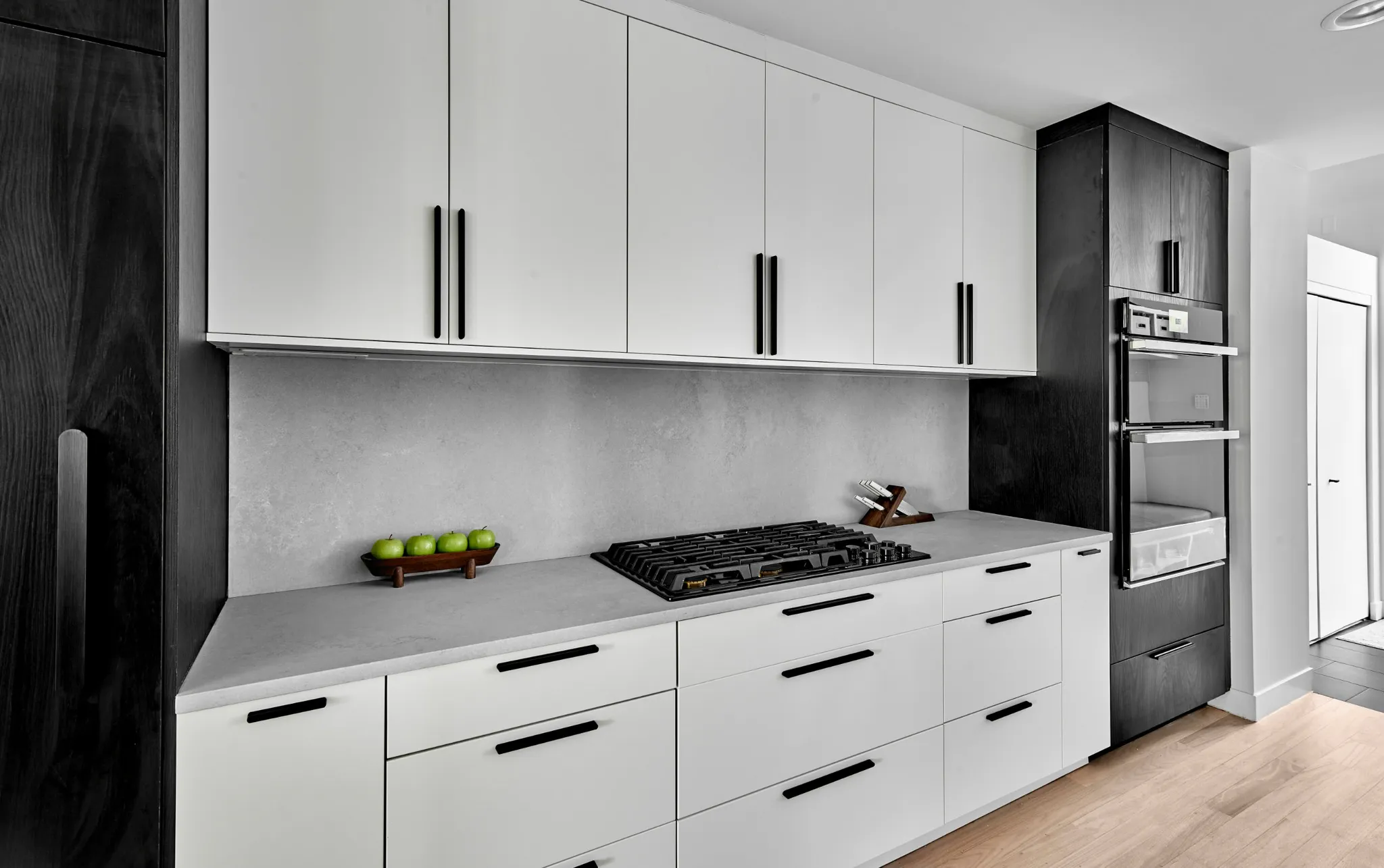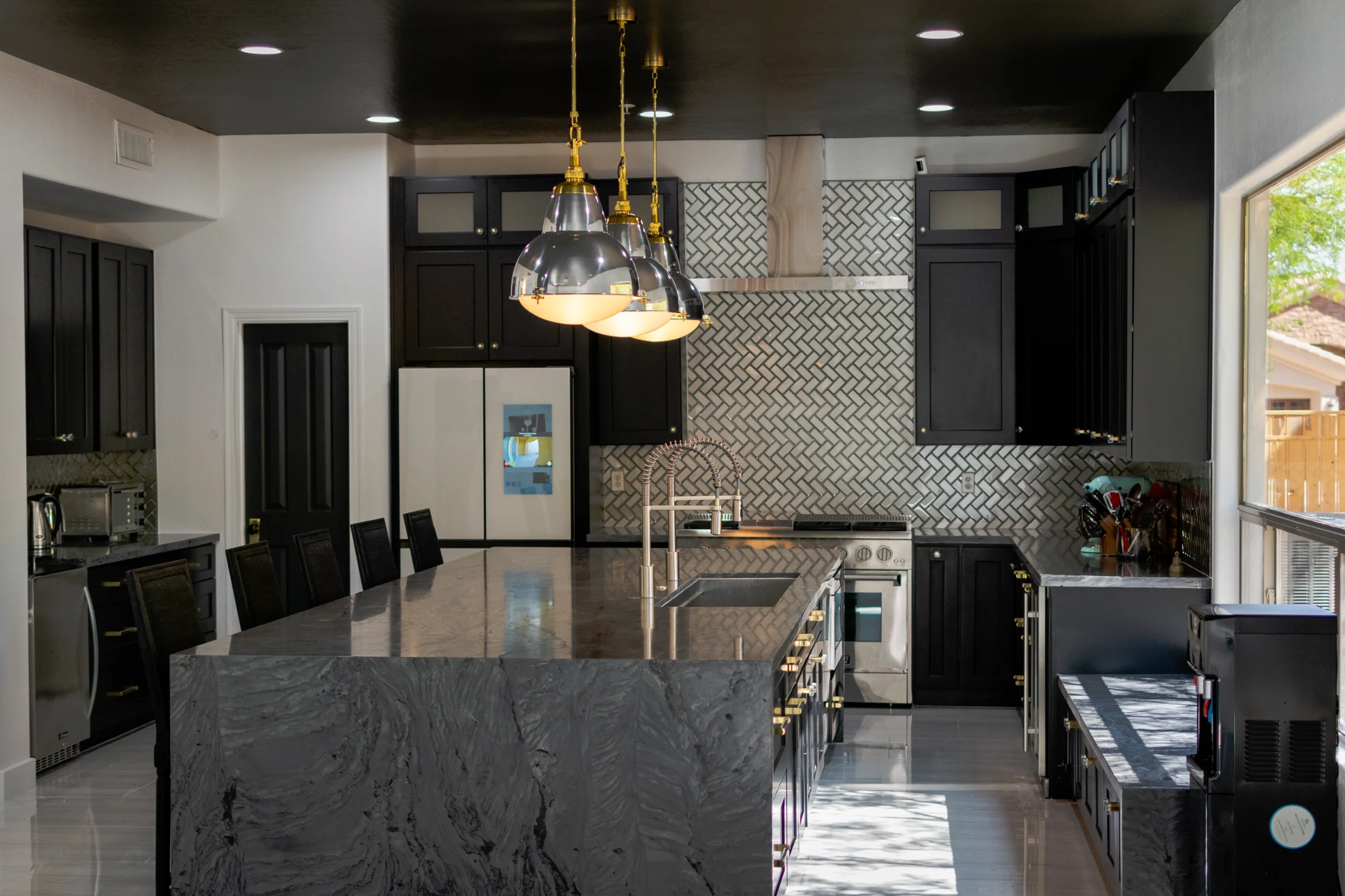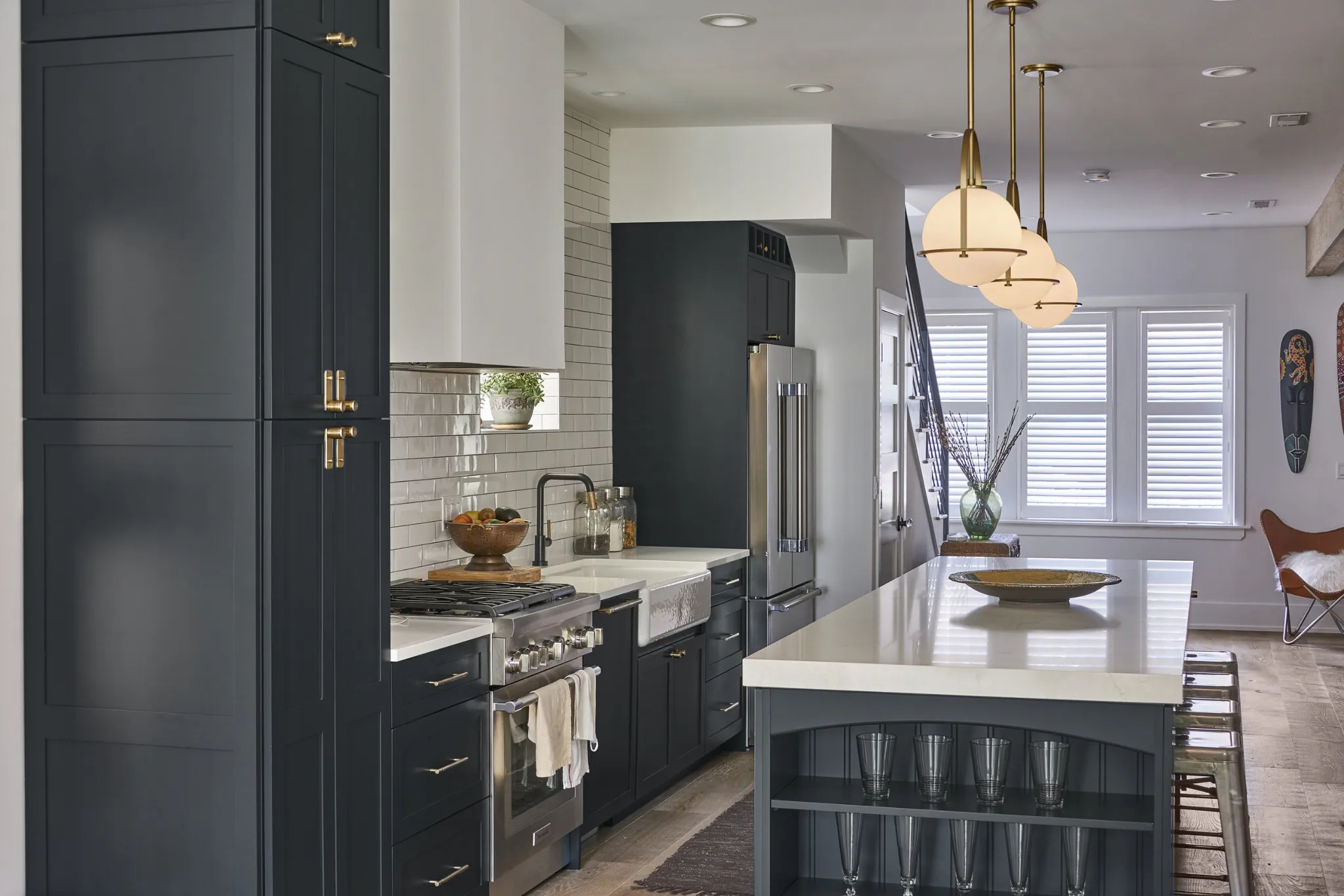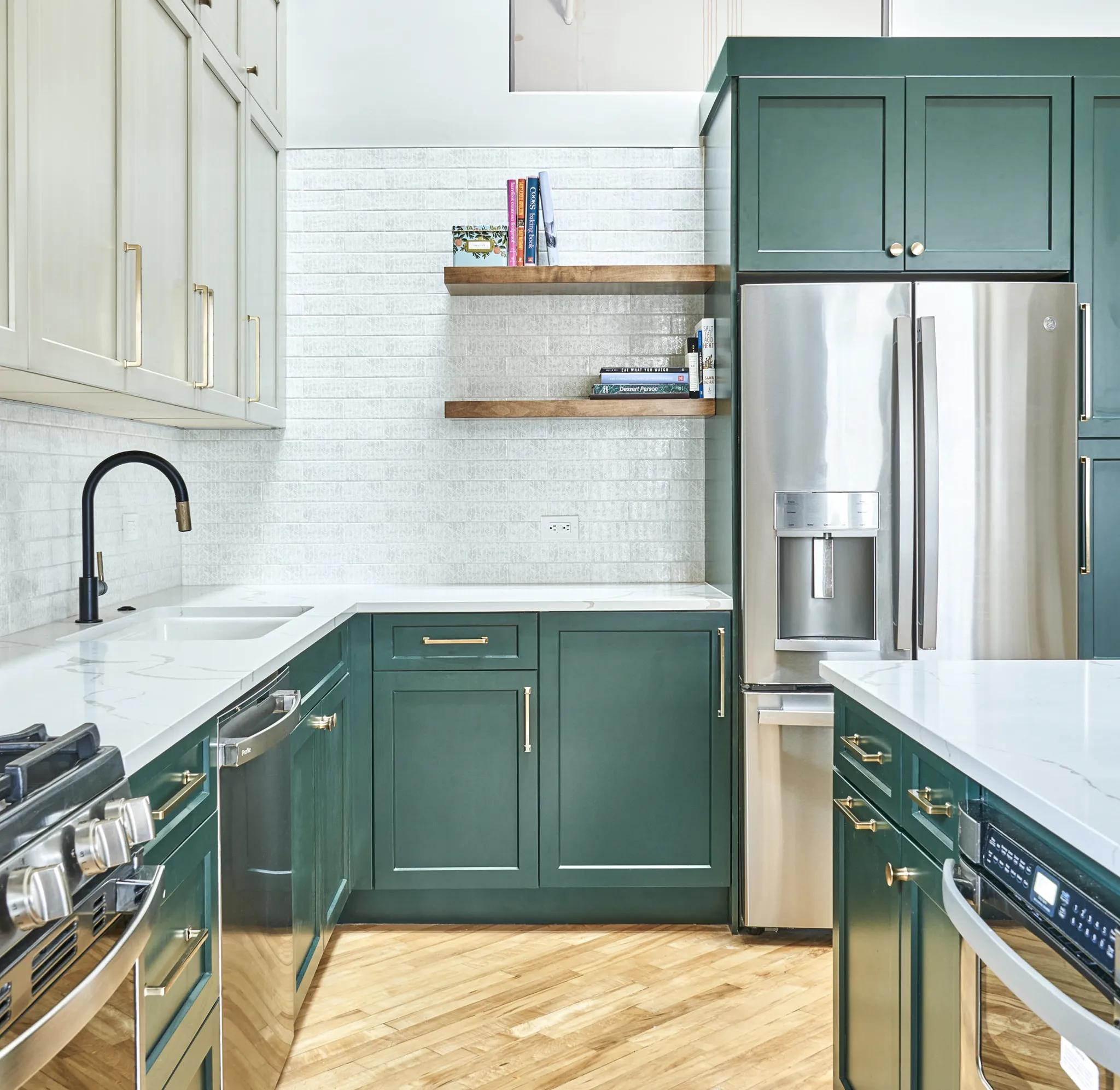When planning a kitchen remodel, choosing the right countertop material represents one of the most critical decisions you’ll make. Your countertops endure daily wear from food preparation, hot cookware, spills, and constant cleaning. The ideal surface combines exceptional durability with minimal maintenance requirements, allowing you to enjoy your kitchen without constant worry about damage or upkeep.
Modern homeowners increasingly prioritize materials that can withstand the rigors of daily life while maintaining their beauty for decades. The kitchen countertop market has evolved significantly, offering innovative solutions that marry form with function. Understanding the characteristics of different materials helps you make an informed decision that aligns with your lifestyle, cooking habits, and aesthetic preferences.
Engineered Quartz: The Low-Maintenance Champion

Engineered quartz countertops have revolutionized the kitchen design industry by offering unprecedented durability with virtually no maintenance requirements. Composed of approximately 90-95% ground natural quartz crystals bound with polymer resins, these surfaces provide exceptional hardness and non-porosity. Leading manufacturers like Caesarstone, Silestone, and Cambria have perfected formulations that resist staining, scratching, and bacterial growth.
The non-porous nature of engineered quartz eliminates the need for periodic sealing, unlike natural stone alternatives. This characteristic makes it particularly appealing to busy households where time for maintenance is limited. The material’s consistent composition throughout its thickness means that minor surface damage can often be professionally repaired without replacement.
Quartz countertops demonstrate remarkable resistance to common kitchen hazards. They withstand acidic substances like lemon juice and vinegar without etching, maintain their appearance despite exposure to coffee and wine, and resist heat damage from moderately hot cookware. The manufacturing process allows for consistent color and pattern distribution, ensuring that large installations maintain visual continuity.
Expert Tip: When selecting quartz, examine samples under different lighting conditions in your kitchen space. LED lighting can reveal subtle color variations that aren’t apparent under showroom fluorescents, and some quartz patterns may appear different in natural versus artificial light.
Natural Granite: Time-Tested Durability

Natural granite remains a popular choice for homeowners seeking authentic stone beauty combined with impressive durability. This igneous rock, formed over millions of years under extreme heat and pressure, possesses inherent strength that makes it highly resistant to scratching, chipping, and heat damage. Premium granite slabs from quarries in Brazil, India, and Italy offer unique patterns and colors that cannot be replicated artificially.
The key to maintaining granite’s durability lies in proper sealing and care. High-quality granite typically requires sealing every 12-18 months, though denser varieties may extend this interval to 2-3 years. The sealing process creates a protective barrier that prevents liquids from penetrating the stone’s natural pores, reducing the risk of staining and bacterial growth.
Granite’s thermal properties make it particularly suitable for serious cooks who frequently use hot cookware. The stone can withstand direct contact with hot pots and pans without damage, though using trivets remains recommended to prevent thermal shock. Its natural hardness makes it an excellent surface for pastry work, as the cool stone temperature helps maintain butter and dough consistency.
Expert Tip: Test granite porosity by placing a few drops of water on the surface. If the water beads up, the seal is intact. If it absorbs within 15 minutes, resealing is needed. Different granite varieties have varying porosity levels – denser stones like Absolute Black require less frequent sealing than more porous options.
Solid Surface Materials: Seamless Functionality

Solid surface countertops, pioneered by DuPont with their Corian brand, offer unique advantages in durability and repairability. These acrylic-based materials provide seamless installation capabilities, allowing for integrated sinks and backsplashes that eliminate joints where bacteria and moisture can accumulate. Brands like Formica Solid Surface, LG HI-MACS, and Wilsonart Gibraltar have expanded the available options with improved formulations and design possibilities.
The homogeneous composition of solid surface materials means that scratches, burns, and other surface damage can be professionally sanded and refinished to restore the original appearance. This repairability extends the lifespan significantly compared to materials that require replacement when damaged. The non-porous surface resists bacterial growth and staining when properly maintained.
Solid surface materials excel in applications requiring complex shapes or integrated features. The material can be thermoformed when heated, allowing for curved edges, integrated drain boards, and custom configurations that would be impossible with natural stone. This flexibility makes it particularly valuable in contemporary kitchen designs that emphasize clean lines and seamless transitions.
Expert Tip: For optimal longevity, establish a routine of using cutting boards and trivets consistently. While solid surface can be repaired, prevention is always more cost-effective than restoration. Keep the surface clean with mild soap and water, avoiding abrasive cleaners that can dull the finish over time.
Concrete Countertops: Industrial Strength Meets Custom Design
Concrete countertops have gained popularity among homeowners seeking industrial aesthetics combined with exceptional durability. When properly mixed, reinforced, and sealed, concrete creates surfaces that can withstand decades of use while developing a unique patina over time. The material’s moldable nature allows for completely custom configurations, integrated features, and personalized finishes that reflect individual style preferences.
Modern concrete formulations incorporate polymer additives, fiber reinforcement, and specialized aggregates that enhance strength and reduce cracking potential. The curing process, typically 28 days for full strength development, results in surfaces that rival natural stone in hardness and durability. Proper reinforcement with steel mesh or fiber prevents structural cracking that could compromise the installation.
The finish options for concrete countertops are virtually limitless. Integral colors, decorative aggregates, and various texturing techniques create surfaces ranging from smooth and polished to rough and industrial. Embedded objects like glass, shells, or metal can create truly unique installations that serve as functional art pieces within the kitchen design.
Expert Tip: Concrete countertops require initial curing protection from temperature extremes and rapid moisture loss. Professional installation includes proper reinforcement design and sealing protocols that significantly impact long-term performance. The investment in quality materials and expert installation pays dividends in durability and appearance retention.
Making the Right Choice for Your Lifestyle

Selecting the optimal countertop material requires careful consideration of your specific usage patterns, maintenance preferences, and design goals. Families with young children might prioritize materials that resist staining and require minimal upkeep, while serious cooks may value heat resistance and food preparation capabilities above all other factors. The kitchen’s design style also influences material selection, as some options complement contemporary aesthetics while others enhance traditional or transitional designs.
Budget considerations extend beyond initial material costs to include installation complexity, long-term maintenance requirements, and potential replacement needs. While engineered quartz typically commands higher upfront costs than laminate alternatives, the elimination of sealing requirements and exceptional durability often justify the investment over the kitchen’s lifespan. Similarly, natural stone materials may require ongoing maintenance investments that should factor into the total cost of ownership.
Professional installation significantly impacts the performance and longevity of any countertop material. Experienced fabricators understand the nuances of template creation, support requirements, and seaming techniques that ensure optimal results. The quality of installation often determines whether a countertop achieves its expected lifespan and maintains its appearance over decades of use.
Professional Installation and Long-Term Performance
The durability and low-maintenance characteristics of any countertop material depend heavily on proper installation by experienced professionals. Accurate measurements, appropriate support structures, and correct seaming techniques form the foundation for long-term performance. Professional fabricators understand the specific requirements of different materials and can identify potential issues before they become problems.
Quality installation includes proper substrate preparation, adequate support for overhangs, and appropriate expansion considerations for different materials. These technical aspects, while invisible in the finished installation, determine whether the countertop will maintain its integrity and appearance over time. Professional installers also understand local building codes and can ensure compliance with structural requirements.
Expert Tip: Request references from recent installations and, if possible, visit completed projects to assess the quality of workmanship. Pay particular attention to seam placement and finish quality, as these details reflect the fabricator’s skill level and attention to detail. A quality installation should be virtually invisible in terms of technical execution.
Choosing durable, low-maintenance kitchen countertops represents an investment in your home’s functionality and your family’s daily comfort. The materials discussed offer proven performance characteristics that can withstand decades of use while maintaining their beauty and functionality. Whether you prioritize the seamless appearance of engineered quartz, the natural beauty of granite, or the industrial performance of stainless steel, selecting the right material for your specific needs ensures years of satisfaction with your kitchen remodel investment.
Contact 123 Remodeling for a free estimate and design consultation for your kitchen remodel.
